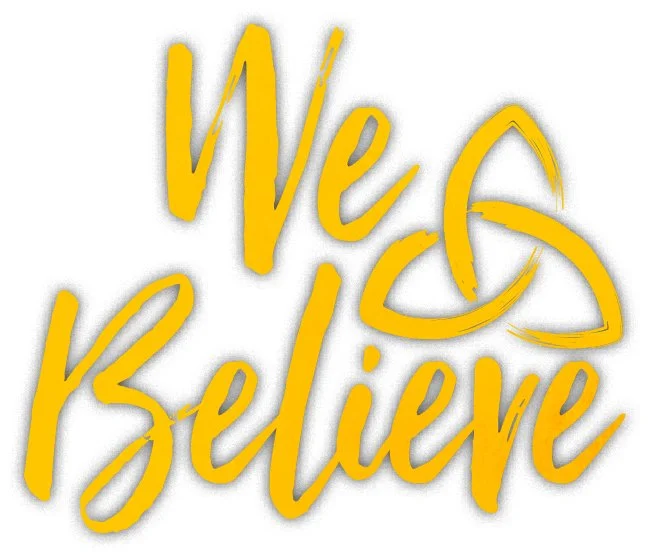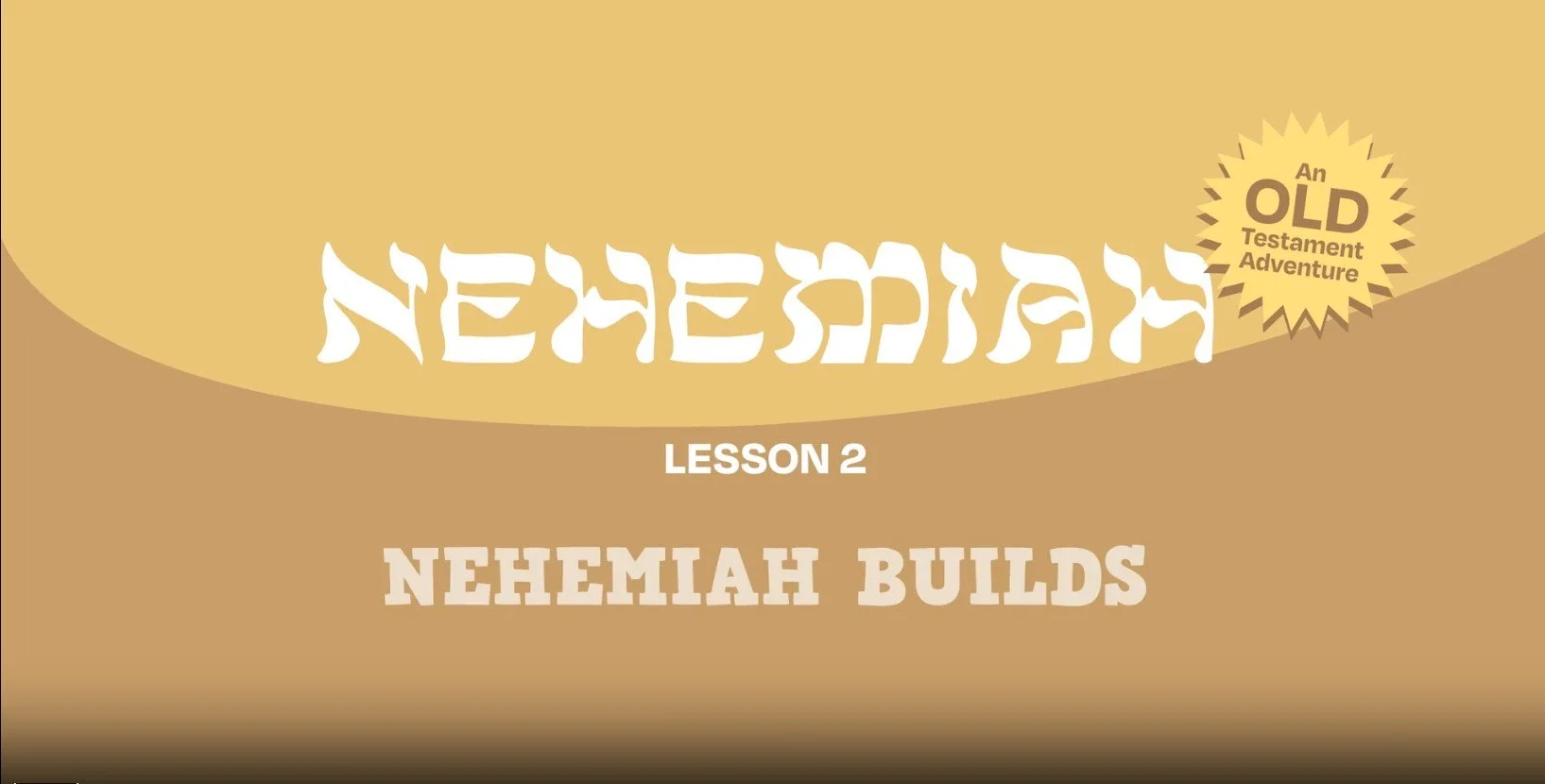2026
Discipleship Series
Between Epiphany and Lent, we will be looking at different aspects of discipleship. This will flow into our Life Groups, where we will be studying Peter. Table Talk on Wednesday lunchtimes will continue our discipleship deep dive by looking at the Fruits of the Spirit.
2025
The Deep Joy of Connection: God is With Us 🎁✨
This week, we explored the joy found in connection, focusing on the announcement to Mary. The Christmas story, far from a big fanfare, speaks of God connecting with humanity through a young couple in a humble place. This narrative brings us the ultimate good news: a Savior is born.
The angel Gabriel’s words to Mary—"You are highly favored, and the Lord is with you"—are a source of profound, non-fleeting joy that is also true for us today. Just as knowing a powerful ally is with you brings strength, knowing we are children of God and permanently connected to the divine through Jesus brings abiding joy and peace.
The Incarnation—God becoming man—removes the obstacles of separation and offers this ultimate good news to all people: the poor, the rich, the forgotten. Our deepest joy is found in receiving this gift of connection and then sharing it with the world around us. What is your response to this ultimate gift of love?
Reflective Questions
The sermon highlighted the difference between fleeting joy and the deep, abiding joy that comes from connecting with God. What is one practical way you can choose to focus on this deeper joy this week?
Imagine hearing the words, "You are highly favored, and God is with you." How does this truth empower you to face the challenges or "giants" in your life?
Mary treasured and pondered the angel's words in her heart. What are the "good news" words or promises from God that you need to take time to treasure and ponder this Christmas season?
The connection with God is offered to "all people." How can you intentionally share this joy and connection with someone who is currently feeling forgotten or cast out?
This Remembrance Sunday, we look at the part of the Creed that says:
“He will come again in glory to judge the living and the dead, and his kingdom will have no end.”
Jesus’ second coming is not a story of fear, but of hope, justice, and love fulfilled.
He will come again — not in secret, but in glory — to put all things right, to bring true judgment, and to open the door to eternal life in His unending kingdom.
Our part is not to be afraid or to guess the details, but to trust, stay ready, and let God’s Spirit transform us as we live like Jesus each day.
Reflective Questions
What helps you remember that this world is not all there is?
When you think about Jesus as judge, what feelings come up for you?
How can you live more like Jesus while you wait for His return?
What helps you to trust God’s promise that His kingdom will never end?
This week we explore the heart of the Nicene Creed — all about Jesus.
He is Son (sharing God’s very nature),
Saviour (who came down for our salvation),
and Lord (ruling over all things).
The Creed reminds us that Jesus wasn’t created — He is eternal. He came to live among us, died for us, rose again, and now reigns with the Father. These are not just words — they are the story that changes everything.
Reflective Questions
When you say “I believe in Jesus,” what do you really mean?
How does knowing that Jesus is both God and human change how you see Him?
What part of your life do you need to let Jesus be Lord over today?
How could you share your story of Jesus with someone this week?
The Creed
In a world that says, “You do you,” the Nicene Creed begins with “We believe.”
Our faith isn’t just private — it’s shared, lived, and told. For 1,700 years, Christians across the world have spoken the same words, declaring one story: that God created us, Jesus saved us, and the Holy Spirit transforms us.
Knowing what we believe matters — but living it matters too.
Faith without action is empty.
Our words should be matched by lives that show love, kindness, and hope.
"We believe — not just with our words, but with our lives."
💭 Reflective Questions
How would you answer if someone asked, “What do you believe?”
Does your daily life show what you believe about God?
How can you share your story of faith with others this week?
What part of the Nicene Creed feels most meaningful or challenging for you?
Who first told you the story of Jesus — and how might you now tell it to someone else?
The God of Abundance: We Are His Harvest
At harvest, we often think about the food and the fields — but what if we are God’s harvest?
Psalm 65 reminds us that God’s nature is abundance — rivers overflowing, crops growing, life flourishing. Yet before the abundance comes forgiveness: God first restores our relationship with Him, then pours out blessing.
Even when the world feels full of drought, war, and despair, God’s heart remains generous. As people brought into His harvest, we are called to live gratefully, to reflect God’s abundance, and to help bring others into His love.
"We are not just gatherers of the harvest — we are the harvest God has gathered."
💭Reflective Questions
When you think about “harvest,” do you see yourself as something God has lovingly gathered in?
What does it mean to live from a place of gratitude rather than scarcity?
Where might God be inviting you to bring hope or abundance — even in small ways?
How can you reflect God’s generosity in your community this week?
What helps you hold onto faith when the world’s brokenness feels overwhelming?
Giving in God’s work brings joy — and growth.
Paul thanked the Philippians for supporting his mission — not because he demanded it, but because their giving grew their faith. When we support others in God’s work, like Yvonne in Burundi or Kazia in Pakistan, we become true partners in the Gospel.
Mission is not just for “others out there” — it’s for all of us. Through prayer, giving, and encouragement, we share in God’s work across the world and grow closer to Christ ourselves.
"When we give, we don’t lose — we grow."
💭 Reflective Questions
Who are the people or places God might be calling you to support in prayer, encouragement, or giving?
Do you see mission as a shared journey — not just theirs, but yours too?
How does generosity (with time, prayer, or money) shape your faith?
Are there ways you could connect more deeply with one of our mission partners?
What might it mean for you to become a “partner in the Gospel,” like the Philippians were with Paul?
For podcasts that dive deeper into God’s (and Nehemiah’s) story, visit Spotify.
“Baptism calls us not just to believe, but to live differently — together.”
The people rebuilt Jerusalem’s walls — but inside the community, something went wrong. Exploitation, debt, and injustice crept in, and Nehemiah had to confront it head-on. God’s people are not called to push others down so we can rise higher, but to live in God’s abundant love where no one is left behind.
Click to watch
Baptism reminds us of this truth: to follow Jesus is to turn away from selfishness, align ourselves with God’s way, and live in a community where grace, justice, and renewal flow freely.
"God’s resources are infinite — we don’t need to compete, we need to trust and live differently."
💭 Reflective Questions
Where do you see injustice or exploitation — in your community, workplace, or even in small daily interactions?
How can you use what you have (time, skills, resources) to lift others up rather than protect your own advantage?
What does baptism — past, present, or remembered — mean to you in shaping how you live as part of God’s family?
Nehemiah responded to injustice with courage. What situation in your life might God be asking you to face with holy courage?
Do you live as though God’s love and provision are infinite — or as though you must compete for your share?
Nehemiah shows us that rebuilding begins with two things: everyone playing their part and honest prayers of lament. The wall of Jerusalem could not be restored by one man alone — it took a whole community, each offering their gift, however small. But before building came confession: Nehemiah wept, admitted sin, and trusted God’s promise to bring His people back.
We too are called to build up God’s people — but first we must lament what is broken, then bring our gifts to the work.
"Prayers of lament are the foundations upon which we build."
Reflective Questions
What “piece of the wall” — what small gift or role — might God be asking you to bring?
Why do you think it is important to lament (to be truly sorry) before we try to rebuild or change?
Where do you see brokenness in the church, community, or world that needs both lament and rebuilding?
How can working together, side by side, strengthen our church and witness to others?
Nehemiah trusted God’s promise of restoration. What promise of God do you most need to hold on to today?
Nehemiah’s heart broke for a ruined city he’d never lived in — because he knew God’s promise to live with His people. So he prayed… and God gave him courage to act.
Like Nehemiah, we’re placed “for such a time as this” — in our families, workplaces, and communities — to show the world how good it is to belong to God. Pray. Trust His promises. Be brave.
"Nehemiah knew God’s promises… so he prayed."
Reflective Questions
What breaks your heart in the world — and could it be God nudging you to pray and act?
Where has God placed you “for such a time as this”?
How does remembering God’s promises give you courage when you feel afraid?
In what ways can your everyday life show others “how good it is to belong to God”?
When was the last time you prayed boldly for something only God could do?
“Whose strength do you rely on” – Philippians 4
In Sunday’s sermon, we reflected on Paul’s deeply practical wisdom in Philippians 4. Paul speaks to a community under pressure, reminding them—and us—that when life feels heavy, when we’re angry or anxious, or when relationships break down, we’re invited to respond with gentleness, prayer, and action rooted in Christ.
We were challenged not to lash out when hurt or disappointed but to return again and again to God in prayer. Paul urges us to focus our thoughts on what is good, true, and praiseworthy, even in hard times, and to live those values out together.
We explored how real fellowship means more than being “nice”—it means working through difficulties in the Lord, learning to love each other deeply, even when it’s tough.
“The peace of God… will guard your hearts and minds in Christ Jesus.” (Phil. 4:7)
🙏 Reflective Questions:
When was the last time you responded in prayer rather than react in a moment of conflict or hurt?
What does it mean for you to “let your gentleness be evident to all” in real, everyday situations?
Where do you see things that are “true, noble, right, pure, lovely, admirable” in your life or in the world—and how might God be speaking through them?
Are there relationships in your life that need healing or honest conversation “in the Lord”?
2024
2023
Advent 2022
Walking the Way - Autumn 2022
Lent 2020
May-June 2019
Series: What about Love?





